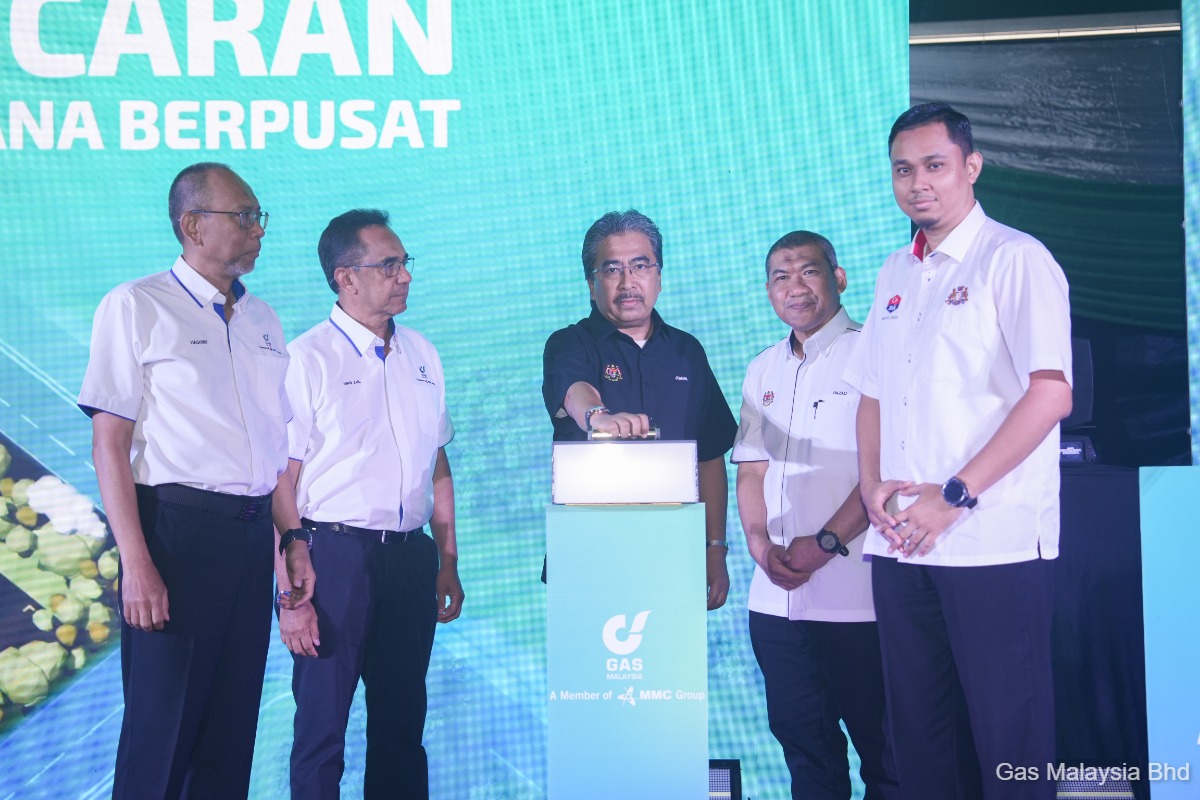
Gas Malaysia bets on biomethane to power Malaysia’s green transition. (Photo: Gas Malaysia Bhd)
Gas Malaysia Bhd has unveiled Malaysia’s first centralized biomethane injection station, aiming to begin full operations in the second half of 2025. Company executives expressed confidence in securing sufficient feedstock from palm oil waste, projecting the facility could break even in as little as seven years.
Turning palm waste into renewable gas
Methane is the primary component of natural gas, and biomethane can be produced through purification of palm oil mill effluent (POME) and empty fruit bunches (EFB).
Gas Malaysia’s green energy subsidiary, Green Venture Sdn Bhd, is constructing the injection hub in Kluang, Johor. The facility will collect waste from palm oil mills within a 200-kilometer radius and inject the resulting biomethane into the national gas pipeline network for use by industrial customers.
At the launch event, Gas Malaysia President and Group CEO Ahmad Hashimi Abdul Manap stated that with the growing availability of palm oil waste, the project is expected to achieve financial break-even within 7 to 9 years—potentially earlier than initially projected.
Ahmad Hashimi noted existing partnerships with mills such as Tereh Palm Oil Mill and agreements signed with over 10 corporate and private entities. The company is targeting a network of 30 to 40 consistent suppliers. While expressing openness to further partnerships, he did not disclose procurement prices for raw gas or feedstock.
.jpg)
Biomethane is produced by purifying palm oil mill effluent and empty fruit bunches, making the availability of palm oil waste a key factor. (Photo: iStock)
Biomethane gains momentum amid net-zero push
To encourage mill owners to participate, Gas Malaysia is offering to finance the required infrastructure for partners lacking capital. For those investing directly, around MYR 20 to 25 million (about USD 4.6 to 5.8 million), the payback period is estimated at 10 to 11 years.
Despite tight supply and export-oriented regulations surrounding biomass materials like EFB, the company is willing to pay premium prices for feedstock. Ahmad Hashimi affirmed that if suppliers can provide more waste material, Gas Malaysia is prepared to offer higher purchasing rates to ensure consistent biomethane output.
He acknowledged that the global shift toward sustainability and net-zero goals has significantly increased demand for low-carbon energy sources. This trend, driven by ESG (Environmental, Social, and Governance) requirements, has also enhanced the company’s pricing leverage in the market.
Gas Malaysia is currently building its fourth biomethane plant in Ampang Jaya, a suburb east of Kuala Lumpur. The facility will have seven times the production capacity of existing plants, partially funded through green financing provided by local banks.
Source: The Malaysia Reserve, The Edge Malaysia, NST
.jpg)


